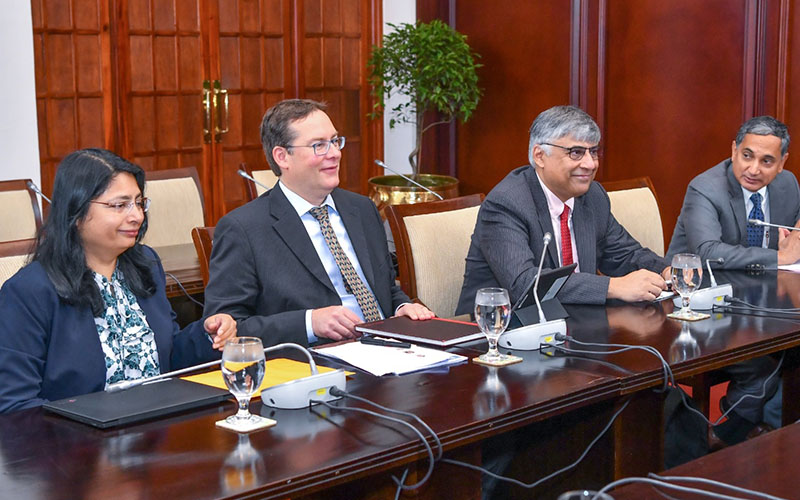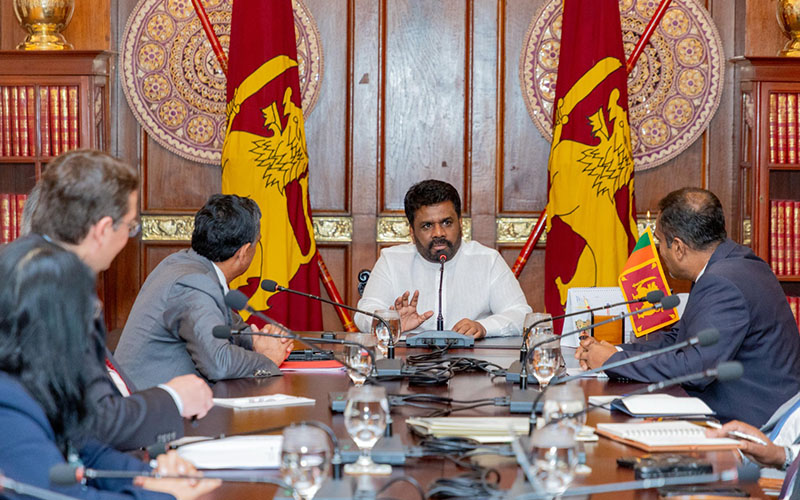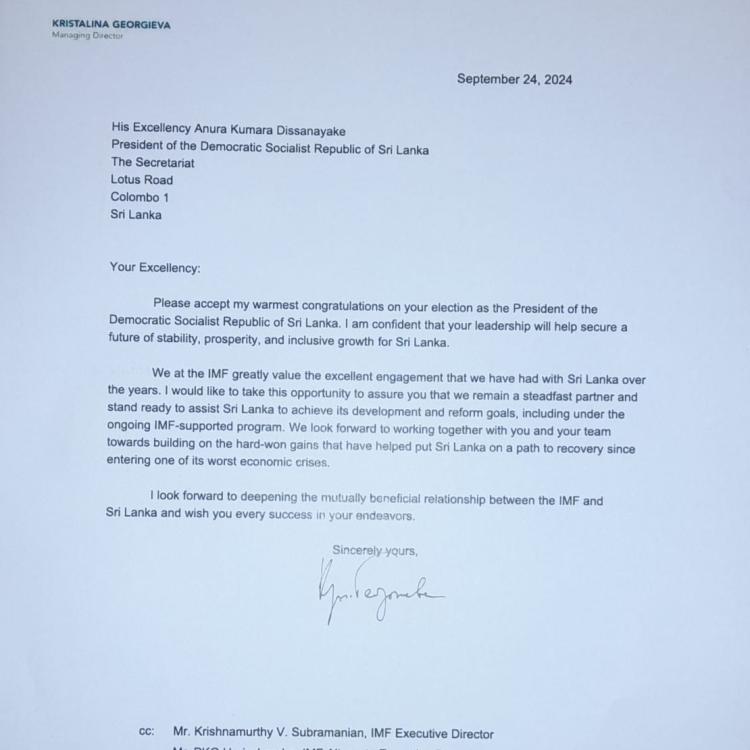
As Sri Lanka’s new president concluded talks with the International Monetary Fund (IMF) last week, the global body warned Colombo that “vulnerabilities and uncertainties do remain” and that it still needed to maintain "hard-won gains".
During his presidential campaign, Dissanayake pledged to “renegotiate” a much-needed IMF bailout program, with fears his pledge could potentially plunging the country back into the economic crisis it experienced in 2022.
According to a statement from the President's office, despite his campaign pledges, Dissanayake “reaffirmed the government’s broad agreement in principle with the objectives of the IMF programme but emphasized the importance of achieving these objectives through alternative means that relieves the burden off the people”.
The IMF, however, underscored the critical need to avoid any backsliding that could jeopardize Sri Lanka’s economy.

"Reform efforts are bearing fruit in terms of reviving economic growth, lowering inflation, boosting reserves and improving revenue mobilisation," spokesperson Julie Kozack said in Washington. "Important vulnerabilities and uncertainties do remain, and this means that sustaining reform momentum is critical."
IMF Asia Pacific Director Krishna Srinivasan called the talks "productive" and focused on maintaining "hard-won gains". He also highlighted that Sri Lanka’s access to a fourth tranche of $336 million in IMF funding depends on meeting key fiscal and spending targets as outlined in the rescue plan.
Srinivasan reaffirmed the IMF’s commitment to supporting Sri Lanka through this period and noted that the organization would continue its close collaboration with the country's economic officials to schedule the third review of the IMF-supported program.
On the evening of October 4, Sri Lanka's finance ministry announced the completion of consultations with the Official Creditor Committee and the IMF regarding compliance with the terms of the Agreement in Principle (AIP), which was reached with both international and local holders of International Sovereign Bonds (ISBs) on September 19, 2024.
Though Dissanayake election promise to renegotiate the painful terms of the loan proved popular at the ballot boxes, analysts have said there may actually be little that can be changed.
"There are certain red lines that the IMF will not agree to negotiate," Murtaza Jafferjee of the think tank Advocata told AFP. "On the fiscal side, there is not much adjustment that can be done.”
Umesh Moramudali, an economics lecturer at the University of Colombo, warned that failing to secure the deal's passage could open Sri Lanka to legal action from its creditors. "It would be in the best interest of the country to avoid litigation with bondholders," he told AFP.
Dhananath Fernando, chief executive of Advocata, a research think-tank, told the Financial Times, “The way out is tough”.

